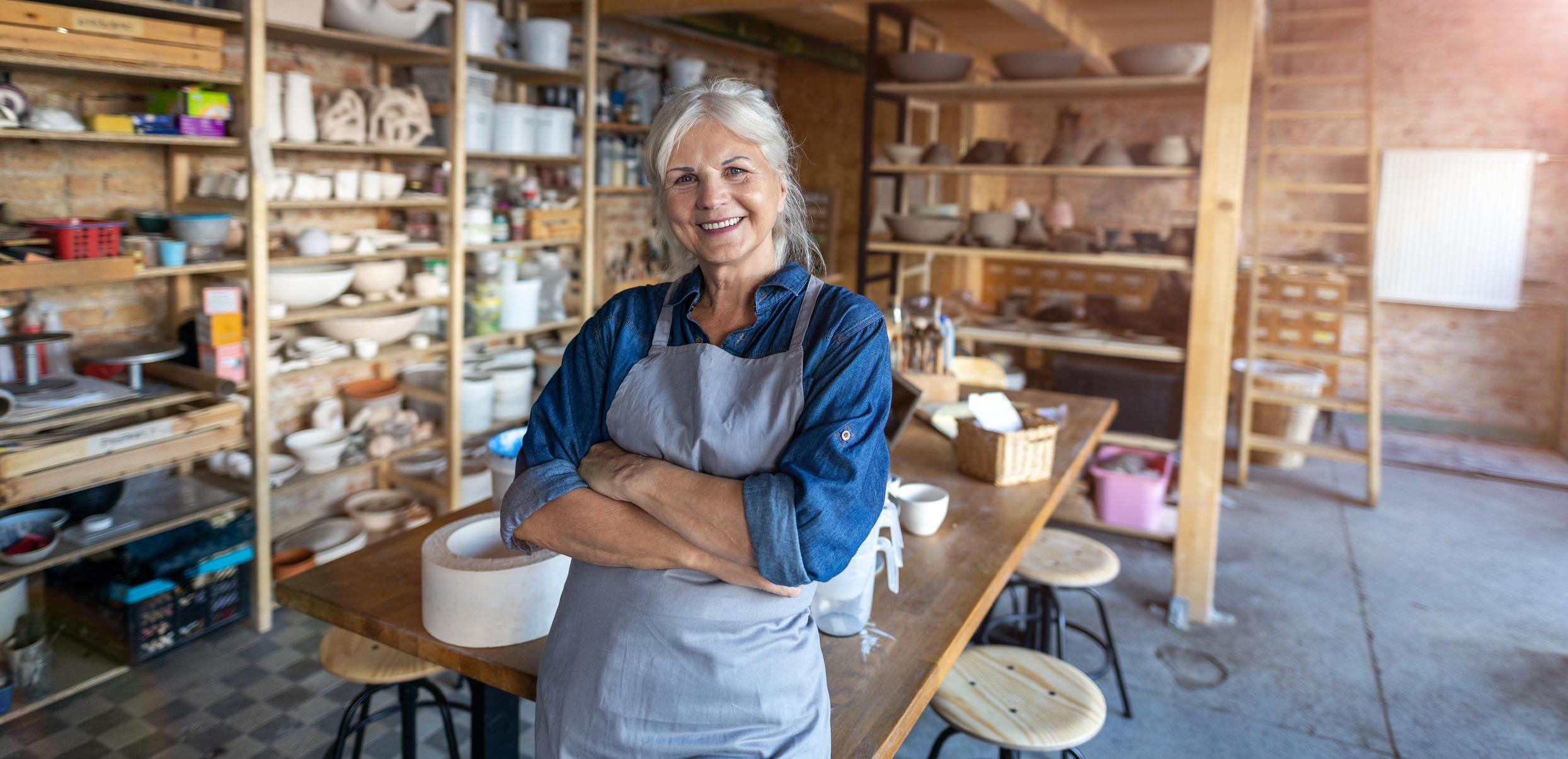MENU
Starting a Business
- Best Small Business Loans
- Best Business Internet Service
- Best Online Payroll Service
- Best Business Phone Systems
Our Top Picks
- OnPay Payroll Review
- ADP Payroll Review
- Ooma Office Review
- RingCentral Review
Our In-Depth Reviews
Finance
- Best Accounting Software
- Best Merchant Services Providers
- Best Credit Card Processors
- Best Mobile Credit Card Processors
Our Top Picks
- Clover Review
- Merchant One Review
- QuickBooks Online Review
- Xero Accounting Review
Our In-Depth Reviews
- Accounting
- Finances
- Financial Solutions
- Funding
Explore More
Human Resources
- Best Human Resources Outsourcing Services
- Best Time and Attendance Software
- Best PEO Services
- Best Business Employee Retirement Plans
Our Top Picks
- Bambee Review
- Rippling HR Software Review
- TriNet Review
- Gusto Payroll Review
Our In-Depth Reviews
- Employees
- HR Solutions
- Hiring
- Managing
Explore More
Marketing and Sales
- Best Text Message Marketing Services
- Best CRM Software
- Best Email Marketing Services
- Best Website Builders
Our Top Picks
- Textedly Review
- Salesforce Review
- EZ Texting Review
- Textline Review
Our In-Depth Reviews
Technology
- Best GPS Fleet Management Software
- Best POS Systems
- Best Employee Monitoring Software
- Best Document Management Software
Our Top Picks
- Verizon Connect Fleet GPS Review
- Zoom Review
- Samsara Review
- Zoho CRM Review
Our In-Depth Reviews
Business Basics
- 4 Simple Steps to Valuing Your Small Business
- How to Write a Business Growth Plan
- 12 Business Skills You Need to Master
- How to Start a One-Person Business
Our Top Picks
Experience Over Goods: The Millennial Shift in Spending

Table of Contents
Millennials are taking center stage. They have a massive spending power, making them an attractive target for businesses selling products and services. However, reaching millennials isn’t a cut-and-dried process. They approach life in a significantly different way than previous generations, and these differences are apparent in their buying behavior. Traditional marketing plans and sales processes don’t seem to work as well with this cohort because millennials prioritize the experience over what they’re actually getting.
To successfully sell to millennials, it’s essential to understand who they are, how they think and what they value.
Who are millennial buyers?
The millennial generation consists of people born from 1981 to 1996. Older millennials are primarily the children of baby boomers (born between 1946 and 1964), while younger millennials likely have Generation X parents (born between 1965 and 1979). There are around 72.1 million millennials in the U.S. population, according to Statista.
Millennials are purchasing powerhouses who have likely embarked on careers; although some are married and some may have children. Millennials with kids are buying items like toys, clothes, and products for education, enrichment and safety. Some have bought or want to buy a home and will likely be involved with purchases associated with homeownership.
However, these milestones are far from uniform among millennials. Here are some commonalities among the generation:
- According to Pew Research, in 2019 only 44% of millennials were married, compared with 53% of Gen Xers, 61% of baby boomers, and 81% of the Silent Generation (children of the Great Depression born between 1928 and 1945) at a comparable age.
- Millennials tend to marry later (when they marry at all) and are more likely to live with a romantic partner without being married than previous generations.
- Millennials have children later, but still have roughly the same number of children as previous generations.
- Millennial fathers are more involved in raising their children.
- Fewer millennials are homeowners, with only 42% owning a home at age 30. Overall, only 17% of homeowners are millennials despite this age group’s large size.
To attract and retain millennial employees, create a company culture of cooperation, offer flexible scheduling, and ensure your team focuses on making a difference.
Millennials focus on experiences
The baby boomer generation – one of the biggest consumer generations ever – valued product ownership as a sign of success. However, owning products today isn’t as impressive and isn’t viewed as a measure of someone’s success to the same degree.
Because many millennials likely grew up with everything they needed, product ownership didn’t become their primary focus. Millennials looked elsewhere, finding experiences to be more valuable than things. Their lifestyle became more important than following a traditional career path to buy a bigger car or house.
Why do millennials prefer experiences over products?
Millennials seek experiences that provide them with a lasting impression. They want the chance to connect with new people.
Here are a few factors driving the millennial preference for experiences:
- Millennials don’t equate money with happiness. Many millennials grew up in households primarily motivated by money. They saw their parents spend on material goods to show off their wealth and success. They may also have noticed that conspicuous consumption didn’t necessarily equate to happiness in their parents’ generation. Studies on happiness agree: People tend to be happier after spending money on an experience compared to a product.
- They eschew debt. Millennials may have seen their parents’ conspicuous consumption lead them to become chained to debt, perhaps even losing their homes. This may be why more millennials are becoming Generation Rent, determined to spend their disposable income on experiences instead of solid assets for the future.
- Social media showcases lifestyles. Social media is another factor playing into the experience boom. Millennials were the first to grow up with the internet, smartphones and social media. To generate more social media likes, users showcase their lifestyles and experiences. Vacations produce way more Instagram-worthy pics than showing off your new purse or car. Social media allows everyone to talk about their lives and learn about others’ lives, which has only been possible with this generation. Millennials want to feel connected, and they’re scared of missing out. Technology has helped drive this shift, leading to the growth of the experience economy.
- Millennials have a unique relationship with money. Millennials grew up in the shadow of 9/11 and the Great Recession. While many went to college and attained degrees, some carry a heavy burden of student debt to the tune of an average of $39,000 per borrower. This debt impacts the lifestyle they can afford, which is not always purchasing a home. Some even live with their parents to cut costs. Nevertheless, millennials can be very loyal to companies that provide more perceived value. For millennials, a big part of added value is experiences.
If you’re managing millennials and Generation Z workers, keep in mind that both generations value corporate responsibility, instant gratification, transparent communication, and regular feedback.
How can brands turn products into experiences?
When you hear about the experience economy, you may instantly think about a day trip or adventure vacation. But experiences don’t have to be so obvious. Today, products can provide experiences, and creating this experience relies on engaging with millennials.
For example, HP launched a special edition Star Wars notebook to coincide with the latest addition to the franchise. It also started the #AwakenYourForce social media marketing campaign to promote interaction, create engagement and deepen the experience. The experience may happen in the comfort of your own home, but it’s still available.
The secret to turning products into experiences is building community, something businesses in the past didn’t concern themselves with. While creating a community has never been the priority for most niches, today it’s essential. Customers don’t just want a relationship with you; they want a relationship with other fans. It’s why social media is quickly becoming the core of all marketing campaigns.
Ways to turn your product into a brand experience
- Host exclusive events. Host events to create a memorable experience. These can be launch events or teaser events where you place your product front and center and give people the chance to interact. This fulfills the millennial desire to attend an event and connect with others. For example, when selling books, include author speaking events or provide a location for a book club to meet.
- Customize the shopping experience. Millennials want to feel like they matter and that businesses cater to them; a customized shopping experience accomplishes both. Retailers are increasingly offering shopping suggestions and promotions based on the customer’s previous history. You can do this by using information stored in your CRM software. Many POS systems often have a built-in CRM component.
- Take your customers on a journey. Don’t just sell to people; go out of your way to help them. Think about what your product is designed to achieve and how it’s supposed to improve people’s lives. For instance, if you sell fitness equipment, extend your website, blog posts and social media platforms to provide exercises, tips to maximize its use and healthy recipes.
- Crowdsource your content. Involve customers by asking them to upload videos and photos of themselves using your product. Ask them for tips and suggestions to share with other customers. This has the two-fold effect of creating an enjoyable experience around your products – feeling like part of a community and receiving recognition from others – and providing you with authentic, quality content for free.
- Use video to expand your brand. Provide customers with virtual experiences through online video content. For example, show them how your product is made, include interviews with the designers and engineers, and tell them about the history of your company or product. Upload or stream videos for a more immediate experience where customers can ask questions.
Use Facebook Live Q&A sessions to meet your customers, answer their questions, share information about your products and services, and humanize your brand.
Millennial marketing is the present and future
As future generations join millennials in buying power and influence, a desire for experiences is only likely to increase. Find ways to frame your products and services as experiences and provide genuine value to ensure customer loyalty for years to come.
Victoria Heckstall contributed to the writing and reporting in this article.











